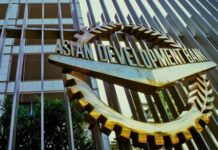ISLAMABAD: The Alternative Energy Development Board (AEDB) has unanimously approved the draft Alternative Renewable Energy (ARE) Policy 2019.
The 46th board meeting of the AEDB was held under the chairmanship of Energy (Power Division) Minister Omar Ayub Khan on Thursday. Power Division Secretary Irfan Ali and all the provincial energy secretaries were present on the occasion.
The AEDB Board deliberated upon the draft ARE Policy 2019, which was prepared by the board in consultation with the public and private sector stakeholders, including provincial government agencies.
The representatives of provincial governments and other board members provided their inputs on the ARE Policy 2019 draft. A consensus was developed on several inputs and suggestions given by the provincial representatives aimed towards improving the policy framework.
The AEDB chairman/energy minister stated that the policy aims to create a conducive environment, supported by a robust framework, for sustainable growth of the ARE sector in Pakistan.
He said the policy would also ensure that the share of renewable energy in the energy mix is increased so that the strategic objectives of energy security, cheaper power generation and environmental protection could be achieved.
The minister further stated that the policy framework has an all-inclusive approach and stipulates an active role and participation of provincial governments at all stages of the ARE developments.
Power Secretary Irfan Ali apprised the meeting that for the first time “an ambitious yet workable policy has been attempted to tap the indigenous resources of the country”.
He said that Provincial participation has been increased in the new draft of renewable energy.






















